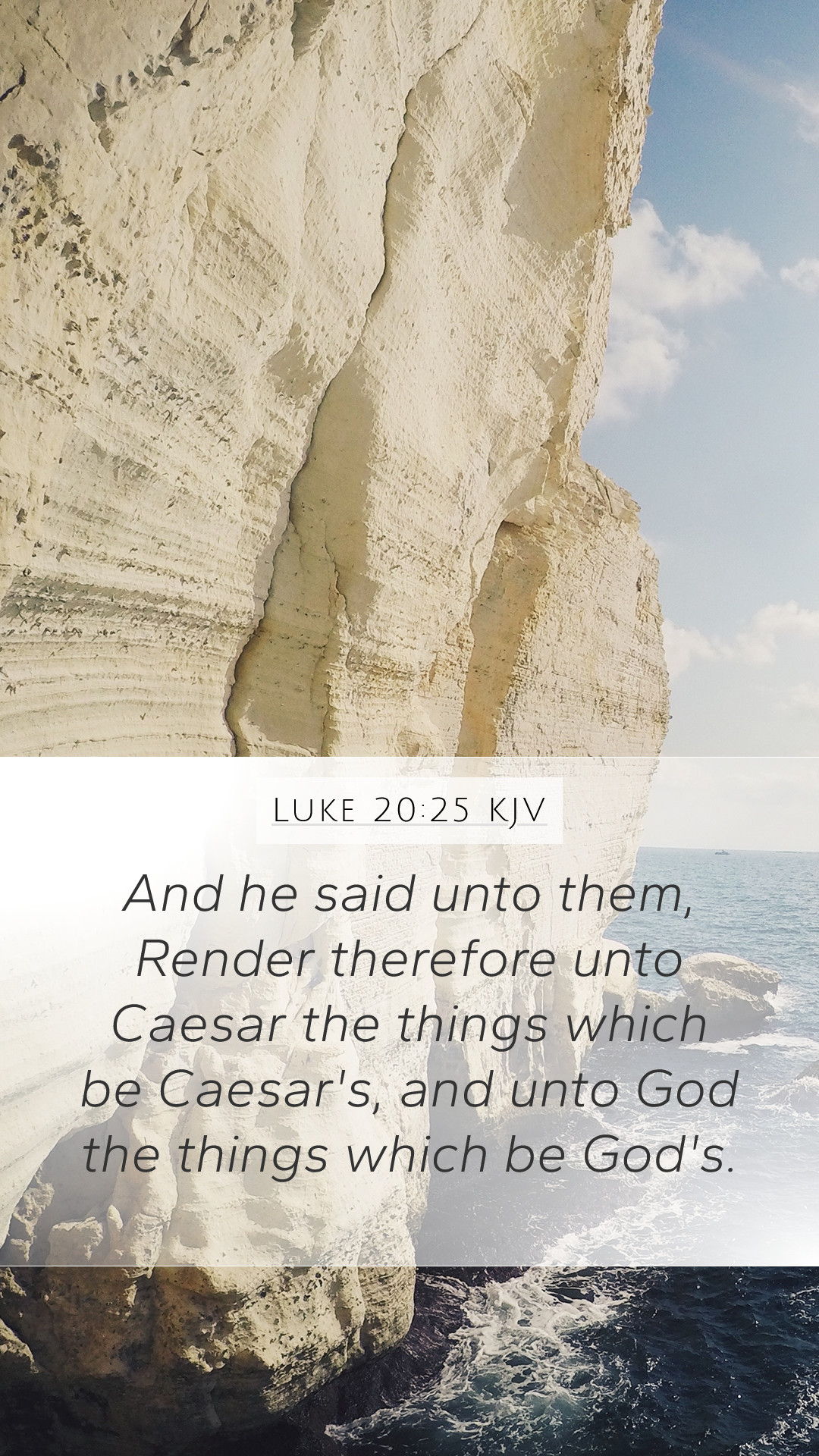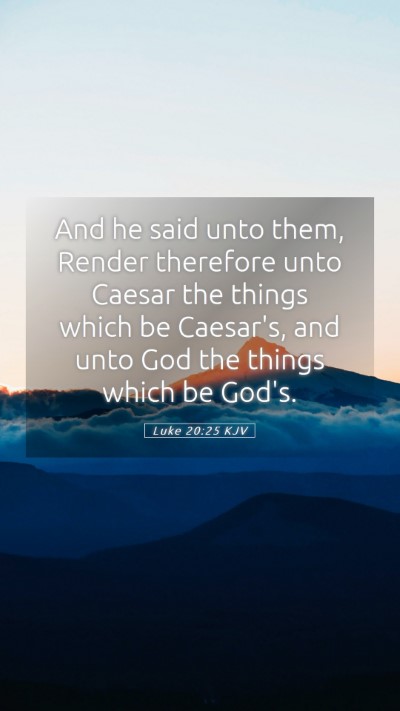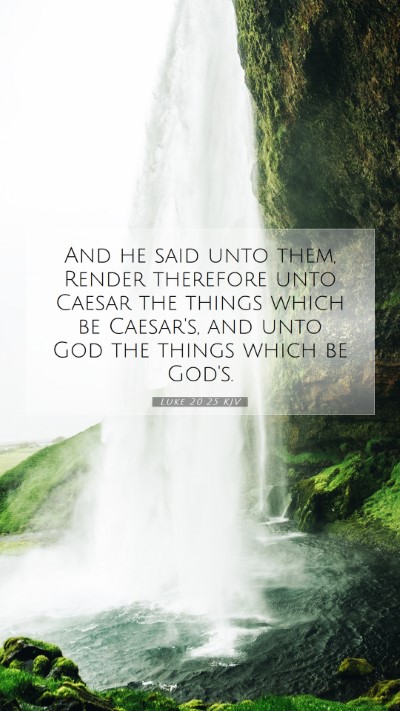Bible Verse Meaning: Luke 20:25
Understanding Luke 20:25 involves delving into the context and teachings surrounding this particular declaration by Jesus. The verse states:
"And he said unto them, Render therefore unto Caesar the things which be Caesar's, and unto God the things which be God's."
Context and Overview
This verse occurs within a confrontation between Jesus and the religious leaders who aimed to trap Him with a question about paying taxes to Caesar. The background involves an entrenched tension between the Roman authority and the Jewish people’s desire for sovereignty. Jesus' response not only sidesteps their trap but also provides deep teachings about the relationship between earthly authority and divine command.
Commentary Insights
-
Matthew Henry's Commentary:
Matthew Henry notes that Jesus’ response highlights the importance of fulfilling civic duties, such as paying taxes, while simultaneously recognizing one’s obligations to God. He emphasizes that both realms have their due, and believers should not neglect their responsibilities to either. Henry argues that this statement encompasses a fundamental principle of living in accordance with both divine and earthly laws.
-
Albert Barnes' Notes:
Albert Barnes expounds that Jesus acknowledges the legitimacy of civil government while affirming the higher authority of God. He points out that the phrase "Render therefore unto Caesar" indicates a separation of duties that Jesus establishes. Barnes underscores the necessity of recognizing the nature of authority and the distinction Jesus makes between secular and sacred obligations, which is vital for understanding the believer's responses in a society governed by both secular and divine laws.
-
Adam Clarke's Commentary:
Adam Clarke remarks on the profound nature of Jesus' teaching here, suggesting that it lays the groundwork for the modern understanding of civil responsibility. Clarke indicates that this verse teaches the necessity of contributing to the maintenance of civil order while prioritizing spiritual allegiance to God. He also alludes to the broader implications of this teaching, suggesting that true devotion to God must influence one's interaction with societal structures and obligations.
Interpretation and Applications
The phrase "Render therefore unto Caesar" suggests an acknowledgment of authority and the need for compliance with lawful demands, provided they do not conflict with God's commands. Christians often interpret this as a call to balance worldly responsibilities with spiritual commitments.
In contemporary application, this verse can guide believers in how they manage their time, resources, and energies between secular employment, civic responsibilities, and spiritual growth. It raises pertinent questions about prioritizing one's life: How does one ensure that in rendering to earthly authorities, they do not neglect their duties to God?
Key Takeaways
- Dual Citizenship: Believers are citizens of both the kingdom of heaven and their earthly nations.
- Spiritual Priority: While responsibilities to the state are acknowledged, they do not supersede one's obligation to God.
- Social Responsibility: Paying taxes, supporting governance, and participating in civic duties are part of a believer's witness to Christ.
Related Bible Cross References
- Romans 13:1-7: Discusses submission to governing authorities, indicating that they are instituted by God.
- Matthew 22:17-21: The account of the same teaching, reinforcing the principle of separating civic duties from spiritual obligations.
- 1 Peter 2:13-17: Encourages believers to submit to every human authority for the Lord’s sake, further elucidating the theme of duty.
Conclusion
Luke 20:25 carries significant weight in the context of biblical teachings about authority, responsibility, and the believer's relationship to the world. It invites a deeper understanding that goes beyond mere observance of law to a heartfelt compliance out of love for God and neighbor. As individuals seek to apply biblical teachings in their daily lives, this verse remains a critical point of reflection regarding how to live in a society that often intersects secular and sacred obligations.


